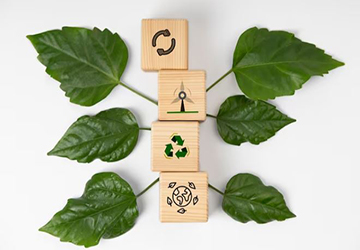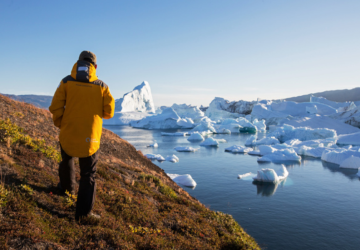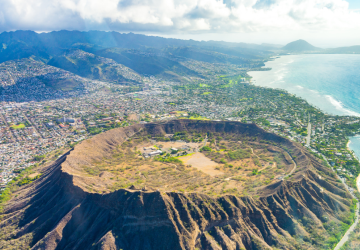Top 6 Benefits of Environmental Protection
Rapid industrialization and urbanization have bought climate change even closer. The need for environmental protection has increased as our planet faces unprecedented challenges. These challenges have threatened many ecosystems and pose significant risks to all living beings. Hence, it is imperative to safeguard the environment and take proactive measures to protect it.
Environmental protection is essential because clean natural resources, better ecosystems, and growing biodiversity reduces pollution and combat climate change. Furthermore, clean water and air are necessary for human survival; hence we need to work towards improving the environment, giving us resources. Overall, these benefits cannot be looked down upon.
So join us on the journey to read the valuable benefits of environmental protection and how it benefits you and the planet.
Remember, what you integrate into your choice will reflect and make a profound difference in saving the planet for future generations.

Better air quality
Trees are not only crucial for beautification, but they give various other benefits too. When we protect the environment, we save or plant trees, and in turn, they clean the air from all harmful pollutants for us. The clean and green space improves urban ventilation, a dire need in today's ever-expanding cities. Moreover, a good environment means we can have parks and other vegetation essential for human survival.
Additionally, when we have a clean environment, our health improves. It also reduces respiratory diseases, which, in turn, other health benefits. It also ensures we have good ecosystems, which creates a sustainable future for all.
Better water quality
Protecting the environment is vital to ensure better water quality and is essential for both humans and the planet. Environmental protection plays a significant role in preventing pollution and preserving water resources' integrity.
Environmental protection means we reduce agricultural and industrial runoff and adequately treat wastewater. This way, we can minimize the contamination of lakes, rivers, and groundwater, which is essential for farming. Moreover, implementing sustainable agricultural practices helps prevent harmful pesticides and insecticides from entering soil water bodies. Additionally, it will save all wetlands, which act as natural filters by trapping sediments.
Clean water is essential for humans too, and safe drinking water reduces the risks of life-taking diseases and promotes overall well-being. Protecting water bodies ensures everyone has a reliable and uninterrupted water supply for sustainable development.
Besides this, aquatic life is also essential as it is a food source. By preventing pollution, we ensure that biodiversity thrives, benefiting humans and other living beings.
Sustainable resource management
Protecting the environment is directly linked to sustainable development and resource management, bringing immense benefits to humans and the planet. By adopting better practices prioritizing environmental benefits, we can ensure the responsible use of natural resources and promote long-term availability.
Sustainable resource management involves sustainable forestry, fisheries, and agriculture. The safe practices in these areas conserve many ecosystems, reduce waste and prevent overexploitation. Moreover, we can maintain soil fertility, protect water resources and protect biodiversity, ensuring a reliable food supply in the coming years.
It also includes the transition to renewable energy resources. It will reduce our everyday reliance on fossil fuels, decrease pollution, and less climate change. This step reduces carbon emissions and provides sustainable solutions for sustainable energy infrastructure.
Another benefit of environmental protection is to promote economic stability in all regions. We can achieve this by utilizing resources efficiently. And by minimizing waste, we can cut costs and create new employment opportunities in different walks of life. Remember, suitable investment in the renewable energy sector, industries, and eco-tourism reduces the strain on natural resources.

Protection of ecosystems
Protecting the environment means protecting the ecosystems, bringing numerous benefits to both the planet and humans. All ecosystems are intricate networks of microorganisms vital to sustaining life on Earth.
We work towards preserving natural areas such as wetlands, forests, oceans, lakes, and coral reefs, maintaining the intricate balance. It helps protect various species of animals, fishes, and birds that live in that ecosystem.
Another benefit of environmental protection is that it has direct benefits for humans. All these ecosystems provide essential services such as clean air and water, pollination, and nutrient cycling, which is crucial for all humans. For example, forests act as carbon sinks and whole wetlands cater to filtration improving water quality and reducing flood risks.
Furthermore, all ecosystems act as recreational spots for humans. It promotes mental and physical well-being, as having access to outdoor activities is essential for good health.
Healthy ecosystems also contribute to better climate regulations, which benefit soils in maintaining their fertility. It is vital for all ecosystems as it enhances the planet's capacity for changes in natural resources.
Reduction in climate change
When we protect the environment, we control climate change. Climate change works on the principle of greenhouse gasses which go into the atmosphere by burning fossil fuels, industrial emissions, and deforestation. So when we work towards a better environment, we work for a good climate.
One of the critical factors here is shifting towards renewable energy resources such as solar, wind, and hydroelectric power. This shift ensures no damage to the ecosystem there, releasing less carbon and promoting clean energy resources.
Reafforestation initiatives also play a big part in reducing climate change. It attracts rainfall and withholds soil in the area to stop the rundown of the ground, saving nearby areas from floods and other natural disasters.
In General, reducing climate change has numerous benefits for humans and the planet. It lessens extreme weather, such as hurricanes, heatwaves, hail storms, and droughts. These unusual weather events bring devastating events to all, so we can protect humans and ecosystems by reducing the risks of climate change.
Increased economic opportunities
Protecting the environment means we can uplift our economy too. It creates opportunities to benefit humans and the planet in the long run, opens up new avenues of sustainable growth, and promotes steps toward an inclusive economy.
One way of fostering these opportunities is by developing green technologies and relevant industries. Investing in this stream of work creates new market job opportunities in various sectors, reducing more significant environmental impact and catering to innovation and competitiveness.
Here, eco-tourism and conservation also create economic benefits. Preserving natural areas and biodiversity attracts visitors, boosting local economies and creating jobs in hospitality and tourism in relevant areas. It includes national parks, reserves, and recreational areas, enhancing local regions and supporting local communities.
Environmental protection results in cost savings too. Adopting sustainable practices in all sectors saves time and energy and reduces waste, saving money. The same can be used for better production of the related businesses. Moreover, optimizing resource management means improved resource availability for all industries, ensuring reduced imports and, thus, saving money.
Overall, environmental protection is necessary for all aspects of life, and it nurtures the planet and is vital for human survival and prosperity.










